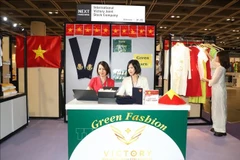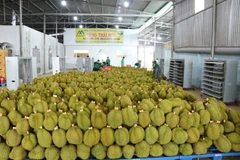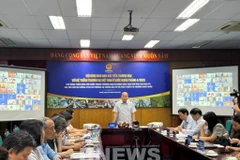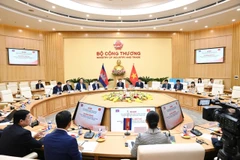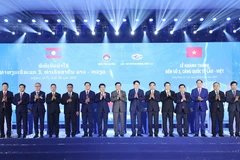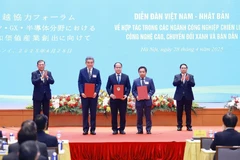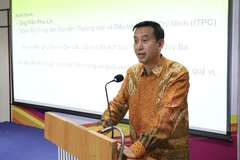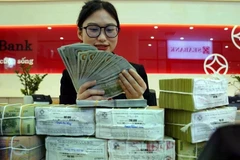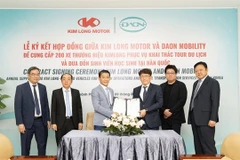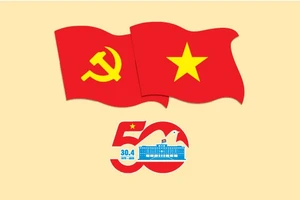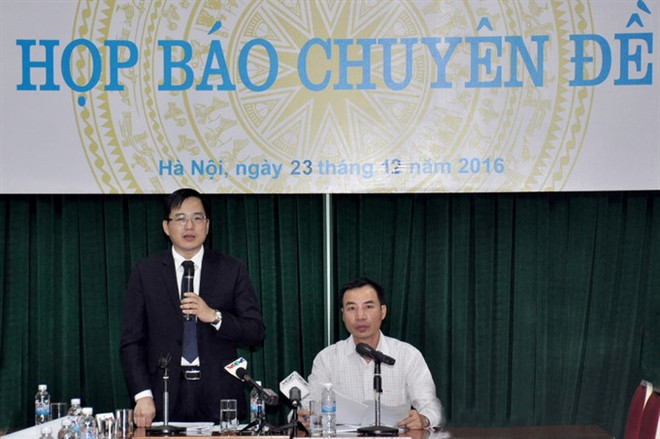 Finance Ministry official Dang Quyet Tien speaks at a conference on equitisation and divestment. He said Vinamilk’s IPO should serve as a lesson for future IPOs of SOEs. — (Photo: mof.gov.vn)
Finance Ministry official Dang Quyet Tien speaks at a conference on equitisation and divestment. He said Vinamilk’s IPO should serve as a lesson for future IPOs of SOEs. — (Photo: mof.gov.vn) Dang Quyet Tien, Deputy Headof the Ministry of Finance (MoF)’s Enterprise FinanceDepartment, attributed the problems to the lack of a clear governmentalframework on SOE divestment, especially for foreign investors.
Another factor was thelack of time, as the initial public offering (IPO) had taken place during theholiday season for foreign investors, he said.
A more confusing part ofthe auction for foreign investors also lay in rules that differed from theglobal norm, like requiring a deposit of 10 per cent of the value of purchasedstocks. Furthermore, the deposit scheme involving dollars had made it difficultfor foreign investors inexperienced in Vietnam to register their purchase,ultimately reducing their interest in Vinamilk’s offering.
He said upcoming IPOsfor other SOEs must be better prepared to avoid such shortcomings, mostimportantly during the promotional phase as not to cause misunderstandingsabout pricing among investors.
Tien’s comments weremade at a conference held by MoF in Hà Nội last week to review results ofnational equity divestments from 2011 to 2015.
Market responses shouldalso be collected and reported back to corresponding government agencies fordiagnosis towards coming up with more flexible equitisation and divestmentprocedures in accordance with world standards, he said.
However, he also saidthat the company had made the right choice to only sell 9 per cent of itscharter capital, as the time limit would not allow for more. At the same time,the price of 144,000 VND per share (6.5 USD) matched Vinamilk’s value, whereasthe market price had been fluctuating below the price set by the company andcould have easily been influenced by large buyers.
Tien suggested thatsimilar transactions had been done abroad using the book building method, whichis a process of generating, capturing, and recording investor demand for sharesduring an IPO, instead of the auction method. Book building supported efficientprice discovery and better suited the needs of large organisations as investorsbecause its procedures are simple and information is secure.
Lessons from Vinamilk’sIPO should be used in future for other major listed companies such as the HanoiBeer Alcohol and Beverage Joint Stock Corporation or the Saigon Alcohol Beerand Beverages Corporation, he said.
Despite anticipationfrom stockholders and a positive forecast by the State Capital InvestmentCorporation (SCIC), Vinamilk finished its auction on December 12, 2016 withonly 78.4 million of the 130.6 million shares on offer sold, equalling 9 percent of the company’s total charter capital.
Only two major foreignbuyers registered beforehand to purchase stocks from Vinamilk’s IPO. Both fundsbelonged to Thai billionaire Charoen Sirivadhanabhakdi, already a stakeholderin the company.-VNA





